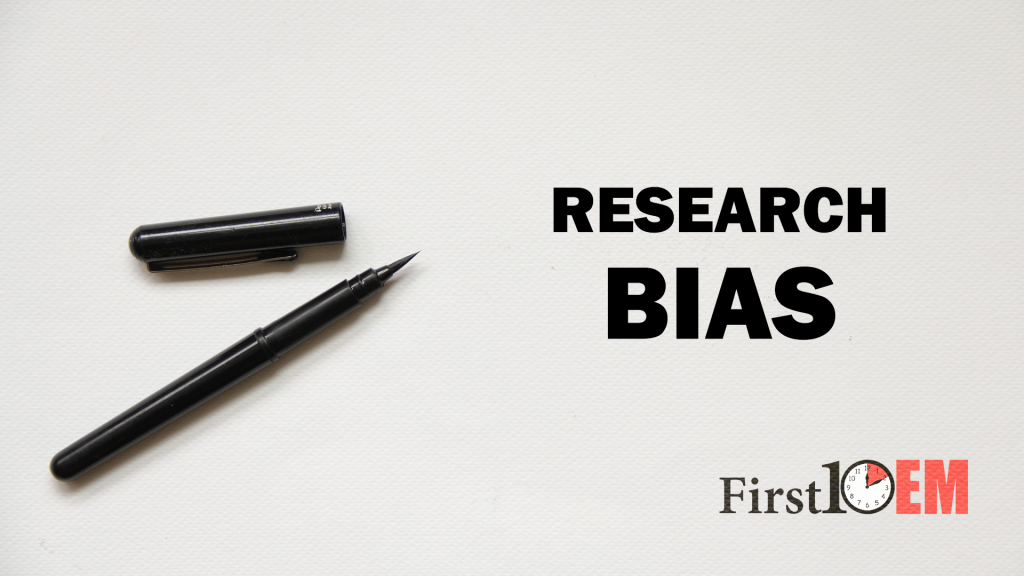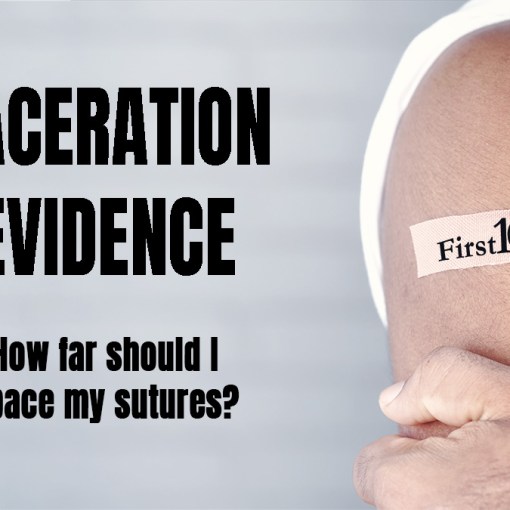A bias in evidence based medicine is any factor that leads to conclusions that are systematically different from the truth.
Bias is universal. Some study designs are better than others, but there is no perfect study. Although in general parlance “bias” has moral or ethical implications, research bias does not refer to the researcher’s character, just the validity of the study. (I do not include fraud as a type of research bias, but it is important to be aware that the medical literature is full of examples of both major and minor research fraud.)
Bias is not something that can be accounted for with statistics. Larger sample sizes will can create more precision, but that doesn’t help if the numbers aren’t accurate. Ideally, we want to see research that is both precise and accurate, but I would take accurate over precise any day.

I really believe that evidence based medicine is easy. Most types of research bias are actually quite easy to understand. Unfortunately, critical appraisal novices are frequently scared off by the sheer number of biases and the technical jargon that is often used to describe them. For that reason, I have started this glossary of research biases.
Bias Glossary
Verification bias (or partial verification bias)
There is no official list of research biases to refer to. As a consequence, a number of these terms are used differently by different people. I have included competing definitions wherever I found them. If there are other research biases that you think should be included, or have suggestions to improve this resource, please let me know.
More evidence based medicine resources can be found here.
Key Point: The existence of research bias does not indicate wrongdoing on behalf of the researchers. For example, a researcher could run a methodologically perfect weight loss trial, but because people that volunteer for such trials are systematically different from the general population, the results could be impacted by selection bias, limiting the generalizability of the results.
Other Resources
(Lots of other great videos on http://www.sketchyebm.com/)
http://www.jameslindlibrary.org/topics/
References
Sackett DL. Bias in analytic research. Journal of chronic diseases. 1979; 32(1-2):51-63. PMID: 447779
Morgenstern, J. Bias in medical research, First10EM, July 2, 2018. Available at:
https://doi.org/10.51684/FIRS.5988






7 thoughts on “Bias in medical research”
Although he does not address bias per se, Simon Winchester has a nice discussion of precision vs accuracy at the beginning of The Perfectionists that he revisits throughout the book.